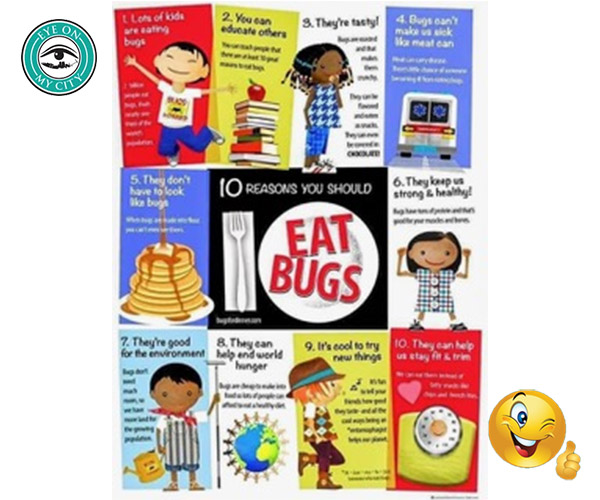Many of us have changed how we spend our hard-earned dollars these days. Gas prices have skyrocketed, so we are driving less or making those trips we do take really count. We are going out to eat less, and our grocery list has changed too. The cost of meat has pushed that protein off some grocery lists.
But are bugs a more affordable protein for tonight’s dinner?
A cursory search on social media using the term “eating bugs” turned up hundreds of posts. When did bug-eating become fashionable? Or are we being conditioned into accepting bugs as food?
In 2012, the International Platform of Insects for Food and Feed was established as an EU non-profit to promote the use of insects as a protein source.
In 2013, President Bill Clinton presented the annual Hult award of $1,000,000 to a group of McGill University students for their edible bug harvesting plan. The students went on to create Aspire Food Group to produce and process insects for consumption.
That same year the United Nations Food and Agricultural Organization (FAO) published a 4-page report on the benefits of consuming bugs. The report says that by 2030 more than 9 billion people will need to be fed. A second report, 201 pages, also published that same year says that by 2050 over 9 billion people will need to be fed.
Last November the FAO published an article titled “what foods may Codex be dealing with in the future?” The article calls “new food production systems” an innovative way to feed a growing global population. Plant-based proteins, edible insects, and 3-D printed or cell culture-based products.
In January the World Economic Forum met in Geneva, Switzerland for the “Davos Agenda.” Part of the agenda was addressing the consumption of meat as a protein.
“We’ve been conditioned to think of animals and plants as our primary sources of proteins, namely meat, dairy and eggs or tofu, beans and nuts, but there’s an unsung category of sustainable and nutritious protein that has yet to widely catch on: insects.
Before you say “yuck,” hear us out.”
June of this year the EIT-Food organization, co-funded by the European Union, published and article titled, “Insects as food and feed in Europe: the future of protein?” The article points out the affordability of insects as a protein, and the potential income benefit from raising insects.
Also in June, the World Health Organization published an article titled, “Stockholm+50 Side Event: Together for a healthy, resilient, and green recovery.” They called it a manifesto for a healthy recovery from COVID-19. Promote healthy, sustainable food systems is No. 4 on the manifesto. It recommends eating small amounts of red meat.
This year, school children in Wales were part of an experiment to promote eating bugs. Scientists and teachers worked to educate the children on the benefits of eating bugs. The European Food Safety Authority approved the consumption of bugs last year.
The burgeoning campaign to make bug-eating fashionable is being driven by climate change activists. Climate change policies have changed our driving habits and are now working to change what we choose to eat.
Bugs – it’s what’s for dinner


